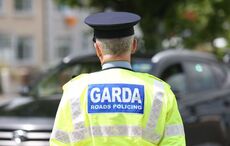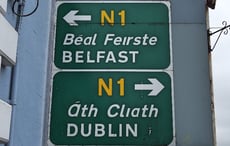EFFORTS to secure agreement on future policing and justice structures in Northern Ireland appear to have taken a significant step forward this week, with the Democratic Unionist Party (DUP) supporting a former IRA leader's decision to join a local policing board. For almost a decade the DUP insisted that it would not accept former paramilitary prisoners becoming members of local district policing boards.In 2002 DUP leader Ian Paisley warned that any attempt to allow former paramilitary prisoners to join policing boards was "obnoxious" and would force Unionists to resign their seats in protest. The hardline Unionist stance was seen as a major obstacle to Sinn Fein and the DUP finding agreement over the transfer of policing and justice powers from the British government into the control of the power-sharing Executive at Stormont.However DUP opposition to former Republican prisoners taking seats on policing boards appears to have ended following DUP Minister Arlene Foster's support for former IRA prison leader Sean Lynch's decision to join a policing board in their native Co. Fermanagh.In 1986 Sean Lynch was seriously wounded in an SAS ambush as he and fellow IRA man Seamus McElwaine went to recover a bomb hidden in a field near Roslea in Co. Fermanagh.McElwaine was shot dead during the incident while Lynch was later sentenced to 25 years in prison for his part in the attempted bomb attack on security force members.Lynch went on to become leader of 350 IRA prisoners in the H Blocks and was seen as a key factor in Republican prisoners' support for the Good Friday Agreement.He was released under the agreement in 1999 and has stood for Sinn Fein in a number of local elections in Co Fermanagh.Earlier this month it was announced that the former IRA leader will now join the policing board in his native Fermanagh.While there was strong criticism from some elements within unionism, the DUP's decision not to oppose Lynch's appointment is being seen as a clear signal of a major move forward in the efforts to secure agreement over the transfer of policing and justice powers.DUP minister Arlene Foster, whose policeman father was shot and seriously wounded by the IRA in the 1970s, admitted that she had mixed emotions over Lynch's appointment, but insisted it should be viewed as a "positive" move."In one way it should be viewed as positive," she said. "For years, Sean Lynch and others attacked the police and he has now come to the view that they are legitimate so he has done a u-turn.Defending his appointment to the policing board, Lynch said, "Nationalists and Republicans have suffered bad policing over the years so there must be changes and I will help hold the police to account."




Comments